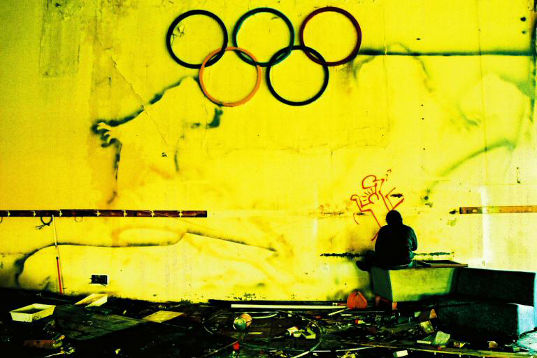I have news for you. We’re amateurs. We’re making this up as we go along.
With few exceptions we are not professionally trained to do what we’re doing. I for one feel my amateur status pretty acutely. Sometimes the fact of my amateurism fills me with the voice of a familiar fear: “Sooner or later they’re going to find out… You’re a fraud, a failure, and a fool. Face it; you’re nothing but a friggin’ amateur.”
***
TJP recently celebrated our one year anniversary – we did this, of course, in the typical Jesuit style of not actually celebrating but basically just keeping on with the work (channeling female friends: “agh, men!”). Looking back, it’s been a pretty good year. We’ve done alright for ourselves as a ragtag group of young upstarts. I’ve even heard real compliments from friends and (relative) strangers. My immediate reaction? Yes! We have them fooled! Because in reality we’re just amateurs who love what we’re doing.
“Amateur.” It actually means “lover.” And for us – for this guy at least – we’re doing what we do because it’s what we’re called to do; it’s where our desire meets the Beloved. I mean that: what you see on this site is Jesuits enacting love. This is how we love. In this sense we are professional amateurs. Sadly these days “amateur” has become a bad word; in our professionalized society the amateur is somehow under qualified or unappreciated. And ain’t that a shame? I, for one, think the world could use a few more lovers.
***
I like what Dorothy Day said of her own amateur movement, the Catholic Worker. In making a case for living a counter-cultural life where love is the sole means and measure of success she said, “We confess to being fools and wish that we were more so… What we would like to do is change the world – make it a little simpler for people to feed, clothe, and shelter themselves as God intended them to do.” Toward this end she concluded that, “there is nothing we can do but love.” I couldn’t agree more. I think it is only in love, only in embracing our fundamental amateurism, that we might do as she suggests.
When I was a Jesuit Volunteer in Belize the best advice I received was to adopt the motto: “Capable, but not qualified.” As in, “Hurricane relief? Sure I’m capable but not qualified.” Or, “Teaching music? Hey, why not… I’m capable… but I’m, ahem, most definitely not qualified.” Obviously there are people whom we need to be well qualified – heart surgeons, engineers, the pilots of my most recent flight – but there is a way in which even these at one point answered to their vocational calls by embracing their amateur passions. Even the most professional of professionals began by acknowledging not their qualifications, but their capabilities. When we do the same, we are freed to attempt an act of love.
It’s a liberating notion. I suggest you try it. Try freeing yourself to say yes to something out of love.
Say: because I love I will do this; because I’m being called upon by another I will do this; even though I have no idea what I’m doing or what will be required of me… I love, so I will say – as a lover to his or her beloved – “I will and I do.”
Then, once you’ve said yes to love, go find all the support you need in order to do what you are being asked to do. But remember how your yes, your willingness to love, was the beginning.
***
Consider the lovers. Are they ‘qualified’ for marriage? Do they have any idea what their new life will be, what challenges it will bring? Probably not. But are they capable? Can they promise fidelity? I believe they can. When I made my own vows as a Jesuit I stood in what felt like a bucket – a wading pool, fishing pond, the Indian Ocean – of nervousness (seriously, you try making public vows of poverty, chastity, and obedience without nerves), but there was love and trust there too.
Was I qualified? Nope. But again and again by the grace of God, and the support of many beloved companions, I’ve been made capable of things I never thought were possible.
And I’m glad to be a part of this particular group of amateurs. Something good is happening here. Lovers are loving. We see what’s out there, we attend to it, and we attempt to reflect back to this beloved world of ours something of what we see. We love it.
Give amateurism a try. Jesus did. He took a bunch of professionals (women and men… fishers and fools) and asked them try something new. And what happened to those fools? He made lovers of them.




